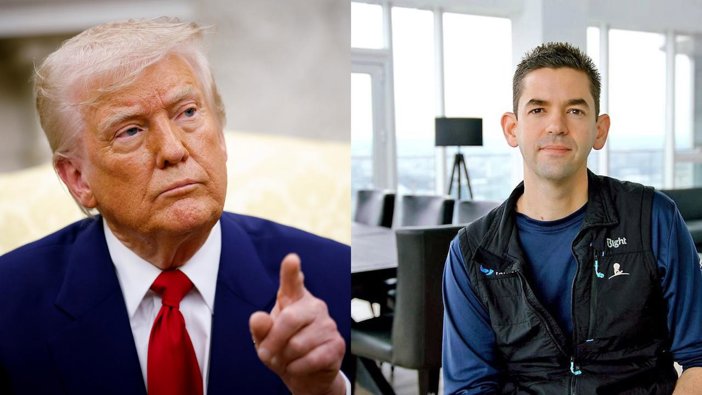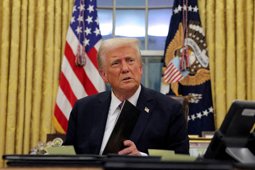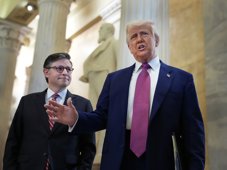
Trump Pulls NASA Nominee Over Dem Ties
Trump pulled Musk ally’s NASA nomination, but many in his cabinet also have Democratic roots or donation records.
Trump Withdraws Isaacman Nomination Amid Donation Scrutiny
President Donald Trump’s decision to withdraw the nomination of billionaire entrepreneur Jared Isaacman for NASA administrator has reignited debate over partisanship and political loyalty in top government appointments. The move comes amid tensions between Trump and Elon Musk, a close ally of Isaacman, and growing questions over the role of political contributions in federal nominations.
Isaacman, a private spaceflight pioneer from New Jersey and the first civilian to perform a spacewalk, was nominated on May 31. His nomination was rescinded this week after what the president described as “a thorough review of his prior associations.” Multiple reports have pointed to Isaacman’s previous political donations to Democrats, including Arizona Senator Mark Kelly, Pennsylvania’s Bob Casey Jr., and a Schumer-aligned SuperPAC. He also contributed to Rep. George Whitesides, a Democrat and former NASA chief of staff who flipped a California swing district in 2024.
The move drew attention because Isaacman’s background and donations were known prior to his nomination, leading some critics to suggest political friction—not qualifications—motivated the reversal. Despite this, Isaacman’s case is not unique in Trump’s administration, where several high-profile figures also have Democratic pasts or funding histories.
Bipartisan Ties Within Trump’s Inner Circle
Trump himself has a long history of donating to Democrats prior to his political transformation. Before 2010, he contributed to figures such as Sen. Chuck Schumer, Hillary Clinton, Sen. Harry Reid, and Sen. John Kerry.
Notably, Health and Human Services Secretary Robert F. Kennedy Jr., a prominent former Democrat and environmental advocate, now serves in Trump’s cabinet. Kennedy, son of the late Sen. Robert F. Kennedy and nephew to Presidents John F. Kennedy and Edward Kennedy, represents one of the most iconic names in Democratic politics. Despite this lineage, Kennedy found common cause with Trump on vaccine risk issues, food safety, and government transparency in health care.
Other members of the Trump administration also reflect bipartisan origins. Director of National Intelligence Tulsi Gabbard served as a Democratic representative from Hawaii and later left the party following clashes with its leadership. Gabbard’s criticism of Democratic elites—including Hillary Clinton—marked her shift toward Trump’s orbit.
Treasury Secretary Scott Bessent, widely praised by conservatives, previously donated to Democratic figures such as Barack Obama, Hillary Clinton, and Al Gore. He formerly led the UK branch of Soros Fund Management, one of the most influential progressive financial organizations. Another top Trump official, Treasury Secretary Howard Lutnick, also made Democratic donations as CEO of Cantor Fitzgerald. His support focused on pro-business, deregulatory agendas rather than party loyalty.
Given these examples, Trump’s decision to rescind Isaacman’s nomination over Democratic affiliations appears inconsistent to some observers. “Trump knew about Democratic ties before nominating him,” one critic noted, pointing to similar backgrounds among sitting cabinet members.
While the Isaacman controversy continues to draw attention amid Trump’s ongoing break with Musk, the episode underscores the complex political profiles of many within the administration. Trump’s own evolution from a bipartisan donor to a staunch conservative president mirrors the diverse affiliations seen across his cabinet.
As the White House faces scrutiny over transparency and loyalty tests in appointments, the Isaacman episode may prompt further examination of how political histories are weighed in executive nominations.






